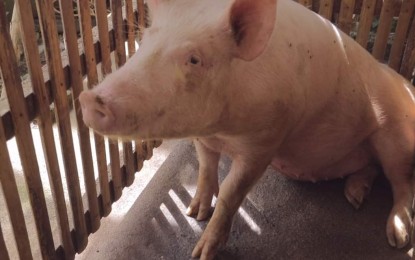
(PNA file photo)
LEGAZPI CITY – More African swine fever (ASF) cases were recorded in Albay province with 109 hogs in Malinao town culled after testing positive for the disease, the Provincial Veterinary Office (PVO) said on Thursday.
The latest detected cases have been added to 857 hogs in the province that were depopulated to prevent the spread of the disease that already affected 163 swine farmers, said Dr. Pancho Mella, PVO chief.
Mella, in a phone interview, said the ASF-affected villages in Malinao were Payahan with 58 pigs culled, Estancia with 36 pigs, and Balza with 15.
He said veterinary technicians that conducted the surveillance and testing have declared Barangays Payahan and Estancia as the epicenter of ASF cases in the town.
He said the two villages were declared as "ground zero" which would serve as a point of reference for determining the quarantine surveillance and control zone based on the 1-7-10 protocol of biosafety measures.
To prevent the spread of the disease, Mella said they advised backyard hog raisers within the 500-meter radius of the affected village to subject their pigs to ASF examination and once tested positive, have these submitted for depopulation.
With the detection of the swine fever cases, Malinao town would be placed on lockdown and the entry and exit of live pigs and meat products would be prohibited.
The PVO chief said six towns and one city affected by ASF were declared as Red Flag Zone areas. These are Pioduran, Polangui, Oas, Daraga, Bacacay, Malinao, and Ligao City.
Under the “red” flag banner, Mella said the town is declared on lockdown, and the entry and exit of hogs and processed meat from the area would be prohibited to prevent the spread of the virus.
He said the provincial Task Force ASF has stepped up its campaign by setting up ASF checkpoints in the Albay-Camarines Sur boundaries in Barangay Matacon, Polangui, and Libon.
“The strict implementation of the checkpoints prevented the entry of live pigs and other meat products from affected ASF areas,” Mella said.
He noted that there are 60,000 pigs in the province, 90 percent of which are owned by backyard raisers and only 10 percent are commercial. (PNA)
